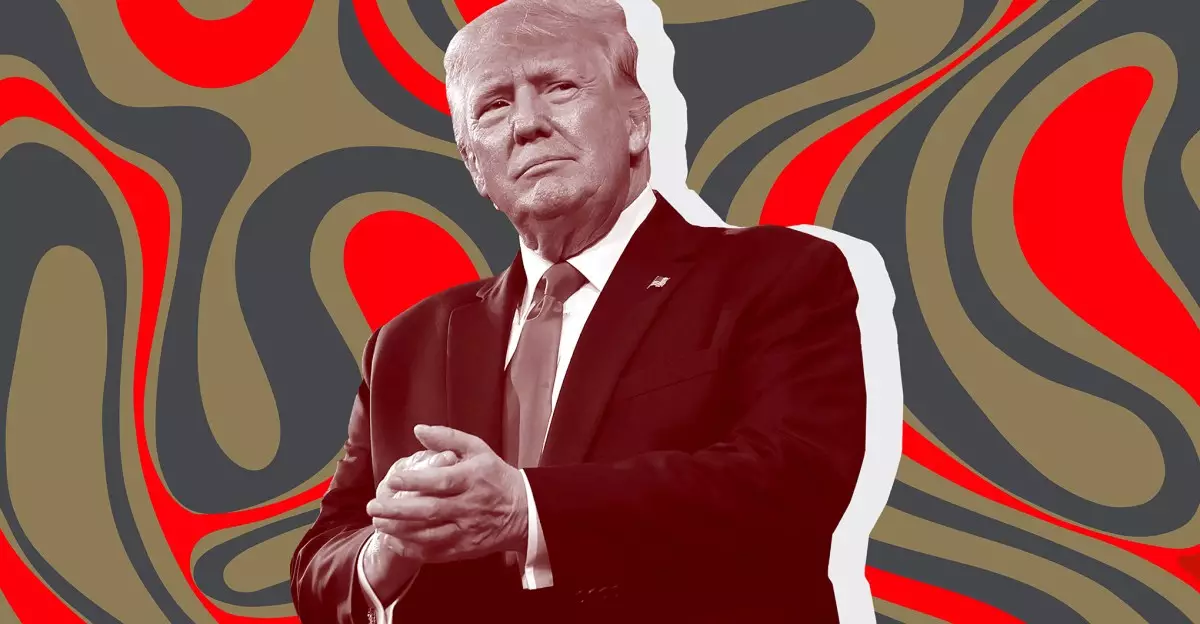In the ever-evolving sphere of cryptocurrency, few events have captured public and political attention quite like the announcement surrounding $TRUMP coin, a digital currency linked to former President Donald Trump. Following the unveiling of a private dinner event for the top 220 holders of this cryptocurrency, its value surged spectacularly, adding an astonishing $100 million to its market cap almost overnight. Initially priced at a mere $9.18 prior to the announcement, $TRUMP coin saw an increase to approximately $14.32, a hike that not only caught the eyes of investors but also raised significant ethical concerns among lawmakers.
This sudden spike raises pressing questions: should we view such events as a savvy political maneuver tailored for financial gain, or a reckless exploitation of power and trust? The latter is what some critics assert in the wake of this announcement, with prominent Democratic senators denouncing the act as one of unparalleled corruption. The fervor surrounding this controversy urges a deeper exploration of the implications of merging cryptocurrency with political endeavors.
A Dinner with Political Strings Attached
Trump’s dinner, publicly advertised, has a dual purpose: to reward and incentivize loyal supporters while also managing their investment strategies in the cryptocurrency market. The tweet-worthy announcement insinuated a “pay to play” dynamic, implying that wealth would grant a degree of access usually reserved for powerful elites. Contestants are urged to hold onto their $TRUMP coins beyond a specific date to elevate their rankings for an intimate White House event—a transformational experience marketed as an exclusive opportunity for the top 25 holders.
Critics have instantly recognized this initiative as not just a promotional stunt but a disconcerting blurring of lines between political influence and financial opportunities. With such overt manipulation, the risk grows that public service may quickly be overshadowed by the ascent of a financial clientele looking to gain favors or access through their investments. Democrats like Elizabeth Warren and Adam Schiff have escalated the call for an ethics investigation, articulating concerns about the implications of wealthy investors garnering preferential treatment in exchange for their fundraising contributions.
The Crypto Community’s Role in Politics
This isn’t the first time Trump has aligned himself closely with the cryptocurrency community. During his tenure and especially during his recent presidential campaign, there has been a long-standing engagement between his administration and the digital currency sphere. Trump’s embrace of the cryptocurrency world includes the appointment of a so-called “crypto czar” intended to navigate regulatory frameworks concerning virtual currencies. This rapport raises questions about the motivations behind such appointments and the ethical ramifications when financial stakeholders are deeply embedded in political circles.
As funds flow from crypto firms to Trump’s campaigns and initiatives, we hear whispers of a new era of political fundraising where traditional barriers upheld by ethics regulations weaken. The shift towards courting the crypto community suggests an intricate dance between political aspirations and financial interests—a relationship that could fundamentally alter the fabric of political accountability.
Good Governance vs. Profit Motives
Against this backdrop of political maneuvering, we must assess the real meaning of governance at such a tumultuous intersection. Should the creation of a digital currency linked to a political figure be heralded as innovation, or should it be scrutinized as an opportunistic venture that undermines public trust? As ethics inquiries unfold (or stall, depending on congressional outcomes), the public finds itself grappling with the evolving nature of power and access. What does it signify when political influence may be bought and sold like a commodity?
The dialogue surrounding ethics in governance is critical now more than ever. The call to action isn’t merely about stopping what some see as a blatant misuse of power but about rethinking how we define political engagement. When traditional models of participation dissolve under the weight of financial pressure, society must question whether this is indeed the future of democracy in a connected world. Should we allow financial investment to dictate political clout, or is it time to re-assert boundaries?
The events centered around $TRUMP coin serve not only as a cautionary tale but also as a potential inflection point for political accountability and ethical governance in a world rife with cryptocurrency.

